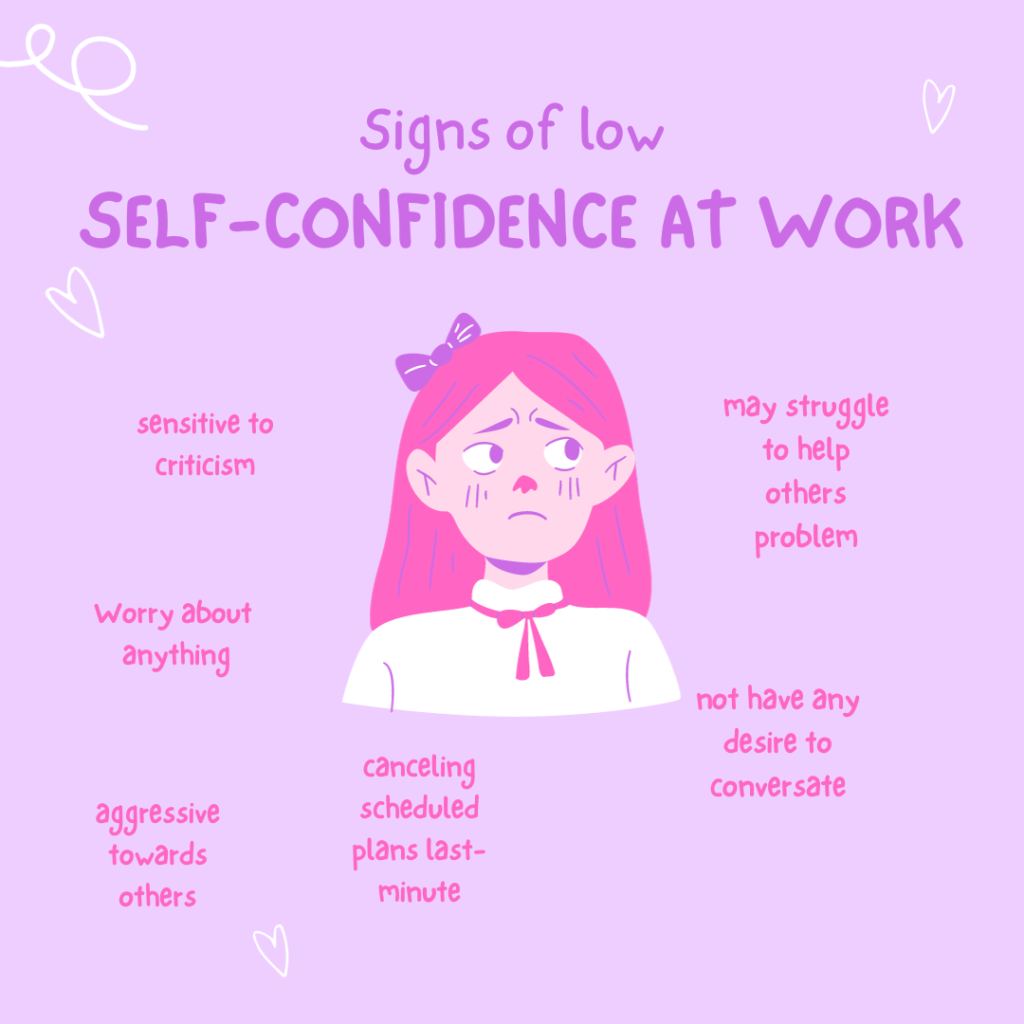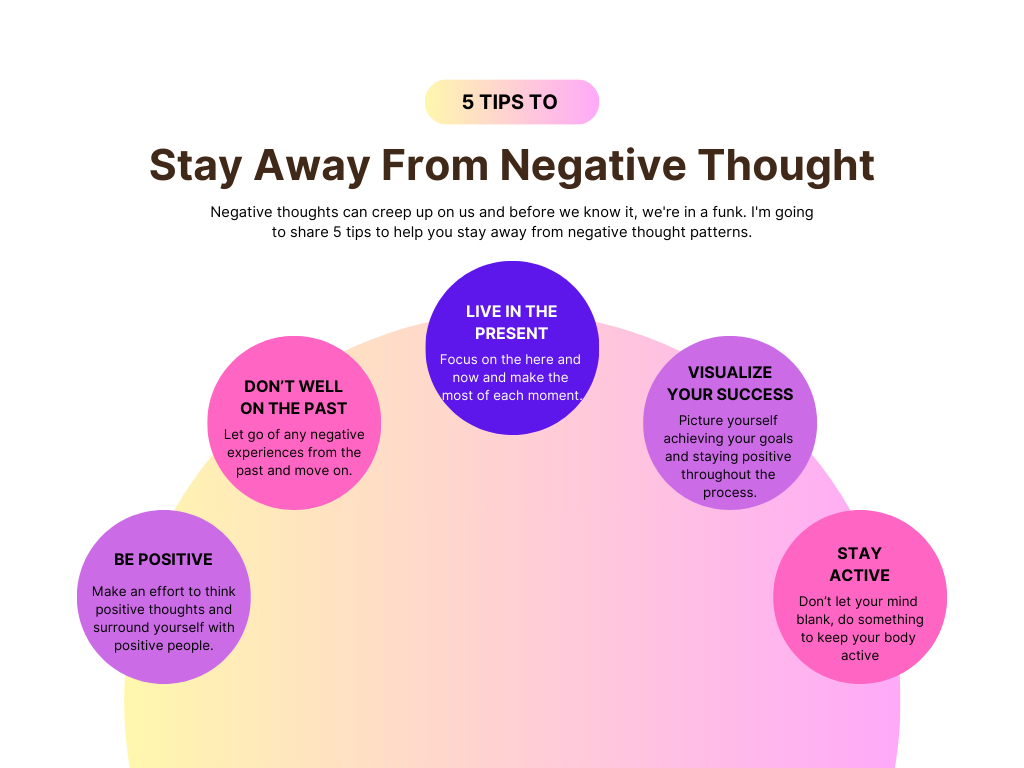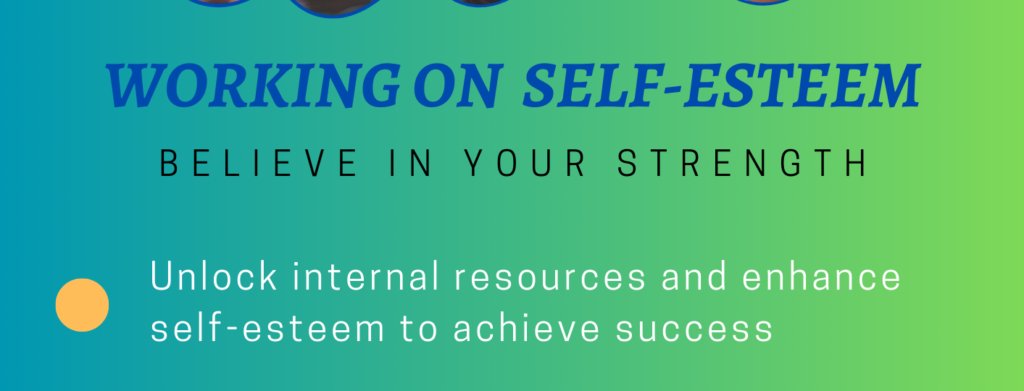
Loss of Confidence at Work can be a common experience for many professionals in the workplace. Whether it’s the result of a negative experience, constant criticism, or self-doubt, a loss of Confidence at Work can affect your performance and create additional stress and anxiety. However, with some effort and self-reflection, you can regain confidence and take control of your career. Here are some tips and strategies to help you overcome a loss of confidence at work.
In this blog post, we will explore actionable strategies to help you regain confidence and thrive professionally.

Understand the Nature of Confidence
Before diving into strategies for regaining confidence, it’s important to understand that confidence is not a fixed trait but a skill that can be learned and developed. Confidence is about believing in your abilities, being resilient in the face of challenges, and acknowledging that mistakes and setbacks are part of the growth process. Remind yourself that everyone experiences self-doubt and that you’re not alone in how you feel.
Few strategies to understand the loss of confidence at work.
Understanding the reasons behind loss of Confidence at Work is an important step in overcoming it. Here are a few strategies to help you gain insights into the underlying causes of your confidence issues:

Reflect on past experiences
Take some time to reflect on any past experiences or events that may have contributed to your loss of Confidence at Work. Was there a specific incident that triggered it? Were there any patterns or recurring themes? Understanding the root causes can help you address them more effectively.
Self-assessment
Engage in self-assessment to identify any personal factors impacting your confidence. Are there any limiting beliefs or negative self-talk that you need to address? Assess your strengths, weaknesses, and areas for improvement objectively.
Seek feedback
Contact trusted colleagues, supervisors, or mentors for feedback on your performance and areas that may require improvement. Honest feedback can provide valuable insights into areas where you may doubt or lack confidence.
Identify triggers to understand the loss of Confidence at Work
Pay attention to situations or people that trigger a loss of confidence at work. Is it a particular type of task or responsibility? Are there any specific individuals who make you doubt yourself? Identifying these triggers can help you prepare and develop strategies to overcome them.
Recognize cognitive distortions
Cognitive distortions are irrational and negative thought patterns contributing to losing confidence. Examples include catastrophizing, overgeneralization, and self-blame. Learn to recognize these distortions and challenge their validity by seeking evidence to the contrary.
Evaluate your workplace environment.
Assess your work environment for any factors that may negatively affect your confidence. Are there toxic relationships, lack of support, or excessively high expectations? Understanding the external influences can help you address them or seek alternative solutions.
Seek external perspectives
Beyond your immediate work environment, consider seeking perspectives from individuals outside of your workplace. This could be through networking events, industry associations, or online communities. Hearing others’ experiences and insights can provide valuable perspectives and reassurance.
Remember, understanding the loss of confidence at work is an ongoing process, and it may take time to uncover all the factors at play. By using these strategies and being open to self-reflection, you can gain valuable insights into your confidence issues and begin to address them effectively.
Few Tips to overcoming the loss of confidence at work
Identify the Root Causes
The first step in regaining your confidence is to identify the root causes of your loss of confidence. This could mean reflecting on past experiences that have left you feeling demotivated or underappreciated. It could also involve recognizing negative thought patterns that contribute to self-doubt or imposter syndrome. By understanding the reasons behind your loss of confidence at work, you can take action to address those challenges and move forward.
Identify and Challenge Negative Thoughts
Negative thoughts are often at the root of a loss of confidence at work. These thoughts can create self-doubt, apprehension, and fear of failure. Start by becoming aware of the negative thoughts in your mind and challenge their validity. Ask yourself: “Is there evidence to support this thought? What is another possible perspective?” By reframing your negative thoughts and replacing them with positive and realistic ones, you can shift your mindset towards a more confident outlook.

Focus on Your Strengths to avoid loss of Confidence at Work
Rather than dwelling on your weaknesses or perceived failures, focus on your strengths and accomplishments. Reflect on your successes and achievements and remind yourself of your unique skills and talents that set you apart. Create a list of positive traits, abilities, and achievements and refer to it regularly as a reminder of your strengths.

Set Realistic Goals
Setting realistic and achievable goals can provide a sense of purpose and accomplishment, boosting your confidence. Break down larger goals into smaller, achievable steps, and celebrate each achievement. This can help you to regain your confidence in your work and motivate you to keep taking steps forward.
Setting small, attainable goals can provide a sense of direction and accomplishment. Break down larger tasks or projects into smaller, manageable chunks, and celebrate each milestone you reach. As you achieve these smaller goals, your confidence will naturally grow, and you’ll gain momentum to tackle more significant challenges.
Celebrate Your Achievements and Strengths
When experiencing a loss of confidence, it’s easy to overlook your accomplishments and strengths. Take the time to reflect on your past achievements, both big and small. Write them down and remind yourself of your capabilities. Acknowledging your successes can cultivate a sense of pride and belief in your abilities. Remember, your past successes prove that you have the skills and resilience to overcome challenges and achieve your goals.
Seek Feedback and Learn from Criticism
Constructive feedback can be invaluable for personal and professional growth. Contact trusted colleagues, supervisors, or mentors and ask for their input and suggestions. By seeking feedback, not only will you gain insights into areas of improvement, but you’ll also demonstrate a commitment to growth and development. Remember, feedback is an opportunity to learn and refine your skills, not a reflection of your worth or ability.
Seek Support and Guidance
Sharing your thoughts and feelings with a trusted colleague, mentor, or friend can provide valuable perspective related to loss of Confidence at Work. Mentors or colleagues can provide constructive feedback, advice, and guidance, helping you to overcome obstacles and achieve your goals. A supportive network can also help you maintain a positive outlook and gain confidence.

Develop New Skills and Knowledge
Upskilling and continued education are invaluable for personal and professional growth. Invest in yourself by taking courses or workshops or learning new skills or tools to empower yourself with more knowledge and confidence. This can add value to your work and position you as a leader in your industry.
Investing in your professional development can have a profound impact on your loss of Confidence at Work. Seek opportunities to learn new skills through online courses, workshops, or conferences. Acquiring new knowledge and expertise will broaden your capabilities and provide you with the confidence to tackle new challenges and take on greater responsibilities.
Surround Yourself with Supportive Individuals
The people we surround ourselves with can significantly impact our confidence levels. Surround yourself with individuals who believe in you, support your growth, and inspire you. Seek out mentors or join professional networks where you can connect with like-minded individuals who can offer guidance, encouragement, and practical advice. Together, you can navigate workplace challenges and uplift each other.
Practice Self-Care
Taking care of yourself holistically is crucial for confidence. Maintaining your overall well-being is crucial for maintaining confidence and a positive mindset. Make self-care a priority by engaging in activities that bring joy, alleviate stress, and promote mental well-being. This means eating a healthy diet, exercising regularly, managing stress with relaxation techniques, and getting enough rest. Maintaining mental and emotional health with activities like meditation, reading, or hobbies can also help you feel more balanced and centered.
Embrace Failure as a Learning Opportunity
Failure is an inevitable part of any journey toward success. Instead of allowing failures to diminish your confidence, reframe them as valuable learning opportunities. Each setback allows you to grow, adapt, and refine your approach. Embrace a growth mindset and cultivate resilience by viewing failures as stepping stones on your path to success. With each failure, remind yourself that you are gaining invaluable experience and knowledge.
Practice Visualization and Positive Affirmations
Visualization and positive affirmations are powerful tools for managing loss of confidence at work. Take a few minutes each day to visualize yourself succeeding in your professional endeavours. Imagine yourself confidently handling challenges, demonstrating your skills, and achieving your goals. Additionally, practice positive affirmations by repeating phrases such as “I am capable,” “I am resilient,” and “I have the skills to succeed” to reinforce positive self-beliefs.
Seek Professional Support if Needed
If your loss of confidence significantly affects your well-being, career growth, and ability to function at work, don’t hesitate to seek professional support. Career counselors, therapists, or coaches can provide guidance and tools to help you navigate these challenges effectively. They can assist you in developing strategies tailored to your specific needs and circumstances.
Wrap up
Remember, rebuilding confidence is a journey that requires patience, self-compassion, and consistent effort. It’s important to recognize that setbacks and moments of self-doubt are normal and temporary. By implementing these strategies and nurturing your self-belief, you can regain confidence, excel in your profession, and navigate future challenges with resilience and grace.
If you’re experiencing a loss of confidence at work, don’t hesitate to seek guidance or advice from your colleagues or professional network. Together, you can overcome this obstacle and regain confidence in your abilities and career. I hope these tips and strategies are helpful to any reader experiencing a loss of confidence at work. Remember, self-improvement is a continuous journey, and it’s important to embrace learning and growth for continued success.
Check List
Identify the symptoms of the loss of confidence, such as lack of motivation, feelings of self-doubt, and poor performance.
Write here the reasons: ———————————————————————————–
Reflect on past experiences and identify any events or situations that may have contributed to the loss of confidence.
Write here the trigger factors: ———————————————————————————–
Engage in self-assessment to identify any personal factors that may be impacting your confidence.
Write here the factors: ———————————————————————————–
Seek feedback from trusted colleagues, supervisors, or mentors on your performance and areas that may require improvement.
Note here the Feedback:———————————————————————————
Identify triggers or situations that cause a loss of confidence and develop strategies to overcome them.
Write here the strategies: ———————————————————————————-
Things to Do
- Challenge any negative or limiting beliefs that may be impacting your confidence.
- Evaluate your workplace environment for any factors that may be negatively affecting your confidence.
- Take care of your overall well-being and prioritize self-care to promote mental and emotional health.
- Invest in professional development and seek out opportunities to learn new skills or expand your knowledge.
- Develop a support system of like-minded individuals who can offer guidance, encouragement, and practical advice.
By completing this checklist, you can gain a better understanding of the underlying causes of your loss of confidence and develop strategies to regain confidence and thrive in your career. Remember, rebuilding confidence is an ongoing process that requires patience, self-reflection, and consistent effort.





One thought on “Loss of Confidence at Work: Tips and Strategies for Overcoming.”